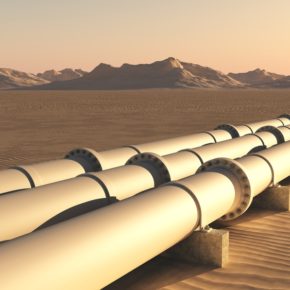
Posted on: 02. 28. 19
Oil is a resource that almost everyone uses on a daily basis. Oil provides the fuel to:
- Move our vehicles
- Heat our homes
- Create medicine, plastics, and other products
Although our nation as a whole uses oil and natural gas farmed from facilities, not everyone is in range to receive the product in a direct manner. Pipelines are the connection between a production site and the consumers that rely on oil to power their lives.
Join Pro-Gas, LLC as we celebrate the history of pipeline development and how it has become the worldwide phenomenon that it is today.
Crude Beginnings
The first commercial oil well was drilled in 1859 by former railroad conductor, Edwin Drake. This first-time strike occurred in Titusville, Pennsylvania and triggered the oil production fever that birthed the first pipelines.
The first “pipeline” was constructed from wood and was the result of consumers attempting to bypass the Teamsters, a group that charged exorbitant amounts for oil barrels to be transported from sites.
By 1879, pipelines began to extend and sprout up in areas away from Pennsylvania. Pipeline sites could be found in:
- Buffalo
- Philadelphia
- New York
- Cleveland
Pipeline Regulation Begins and Mileage Grows
By the time the early 1900s rolled around, one company, Standard Oil controlled more than 80% of the world’s oil production and transportation services. This resulted in government action and pipeline regulation was created through the Hepburn Act. The goal of this action was to prevent price gouging in the pipeline industry.
Product Lines Develop
WWI brought about the introduction of the product pipelines that now began to spread throughout the nation. The need for the use of automobiles also started to boom at this time, and in the 1920s, the United States pipelines experienced substantial growth of 115,000 miles. While this number may seem large, as populations began to move farther west in the nation, we quickly grew to the 2.4 million miles of pipe that the nation currently has today.
Specialty Pipes Leading into a Renaissance
The growth in natural gas production has literally revamped our local energy markets. Now, our pipelines aren’t just focused on oil delivery, but they are also built for the other special needs that our country faces.
Current benefits of pipelines include the ability to:
- Gather oil and gas more than 1 mile below the ocean surface
- Transport carbon dioxide
- Transport chemicals to plants and refineries.
Embrace the Current Energy Renaissance with Pro-Gas, LLC
Pro-Gas, LLC is a Dallas based company that focuses on providing high-quality equipment to natural gas and oil manufacturing facilities. From our popular Fuel Genie to NGL storage options, we have the ability to ensure that your location thrives in the current renaissance of oil and gas farming. Contact us today to find out more about our products and how we can get them to your doorstep.


